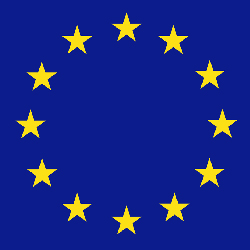Trust Estate
International Law Firm Warns Of EU Threat To Privacy Over Trusts

European legislators are due to vote tomorrow on widening the scope of anti-money laundering laws in a way that could force users of trusts to record them on a public register.
European legislators are due to vote tomorrow on widening the
scope of anti-money laundering laws in a way that could force
users of trusts to record them on a public register, compromising
their privacy, international law firm Withers has warned.
Echoing concerns voiced in the UK print media at the weekend,
Withers said the European Union’s vote, due on 13 February, could
have the effect of forcing all individuals using trusts in the
European Union to publicly register them. Trusts are relatively
unusual on the continent so the impact will weigh particularly
heavily on the UK.
"This extension to the EU's existing - and perfectly adequate -
money laundering rules represents a major shift in focus. Money
laundering legislation is no longer being used to protect against
the infiltration of illicit funds into the financial system, but
as a new tool for the collection of data and its general
accessibility,” Filippo Noseda, joint head of the team and
qualified in Switzerland and England & Wales, at Withers, said in
a note.
“If the new legislation is adopted, it would mean that families'
internal affairs would become public knowledge, regardless of
whether there is any tax at stake and notwithstanding that the
relevant data is already available to any regulated intermediary
who comes across the relevant structure. What this means is a
crass intrusion into the private sphere and of family life
(something that is protected by the European Convention on Human
Rights), without any public interest and in violation of the
principle of proportionality,” Noseda continued.
“Trusts are not widely known in the continental European
constituents of the EU and are often associated with evasion and
abuse. However, under English law, they are part of everyday
life. In other words, trusts are part of the legal mainstay
of the UK and any common law countries, but as there are only two
common law countries within the EU, there is bound to be
unfamiliarity,” Noseda said.
At a time when people are fighting for their privacy against
internet giants and governments have been chastened for their
indiscriminate collection of data, this new use (or abuse) of
money laundering legislation will leave many a European citizen
worried,” the lawyer added.
“We all support efforts to clamp down on money laundering and criminal activity, but the current proposals in Brussels show little or no understanding of how we actually use trusts in the UK. Most trusts are very low risk from a money laundering point of view and the costs families would have to bear of setting up a comprehensive trust register, as well as the intrusion into their family lives if the register is made public, seem completely out of kilter with any possible real world benefit,” Harvey said.
